Staying Fit

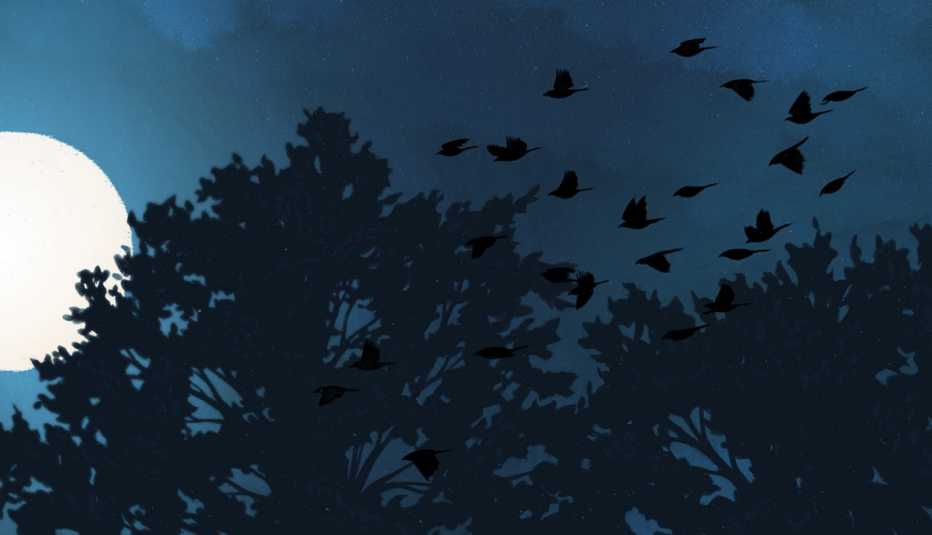
7
“Some people don’t want anything to do with the pie,” Summer Pavegeau said. She tucked a strand of hair behind her ear. “My daddy, for instance. He tells me all the time it’s best to leave the past in the past.”
The reporter took note of her blackberry-stained fingertips as he said, “But you don’t think so?”
She glanced out the window, looking toward the mountains as though searching for something only she could see. “No,” she said, “but I find comfort in the past. All he finds is pain.”
He capped his pen. “Why’s that?”


AARP Membership— $12 for your first year when you sign up for Automatic Renewal
Get instant access to members-only products and hundreds of discounts, a free second membership, and a subscription to AARP the Magazine.
Her gaze snapped back to him. “I thought you were doing an article on the blackbirds?”
Smiling, he said, “I seem to have gotten a little sidetracked.” Summer nodded. “Wicklow has a tendency to do that to people.”
Natalie
I’d rushed straight home from that enlightening encounter with Anna Kate Callow for naught.
Neither Mama nor Daddy had been home. Since it was growing late and they were hardly night owls, they would most likely return any minute now. This time of night, they liked winding down with cocktails and dessert on the patio, a nighttime ritual of theirs as habitual as the setting sun.
I’d wait them out. Although it was past Ollie’s seven o’clock bed-time, I wasn’t ready to give up on getting answers regarding Anna Kate. How long had they known about her? By Mama’s strange behavior at the café this morning, I assumed not long. The way she had acted now made perfect sense—she had been trying to get a look at Anna Kate while keeping me in the dark. It was a familiar pattern—Mama often kept me in the dark on important matters.
While I understood why Mama fought so hard to protect me from anything physically or emotionally harmful, her rigidity on the matter had ended up making her my biggest threat. I wasn’t sure she fully understood the damage she’d done. Or perhaps, she simply hadn’t cared as long as I was safe.
As for Anna Kate, I was thrilled to discover someone else hanging off my mother’s branch of the family tree—surely, she would take some of Mama’s pressure off me. If that someone happened to be a young woman, close to my age, all the better. When I was younger, friends had been hard to come by, being that they all needed the Seelie Earl Linden stamp of approval. I had long since learned to close myself off from potential playmates, just to save the ultimate embarrassment of telling someone that I couldn’t come over that day.
Or ever.
I threaded my fingers through Ollie’s velvety soft hair as I read her a book, and she shifted to lean against my chest. Curled up together on the overstuffed sofa, I took a moment to inhale the sweet, lingering scent of her baby shampoo. This was actually my favorite time of day with her. It was our downtime, when she was extra loving and snuggly.
It had been hours since we’d arrived home, and after getting Ollie fed and bathed, I’d spent most of my time reading books, building blocks, playing trucks, and occasionally checking to see if any of the lights were on in the main house. Or the big house, as I’d called it growing up, seeing as how it felt like a jail.
Ollie blinked slowly, her eyelids growing heavy at the cadence of my voice, and I took a moment to appreciate the miracle that was my daughter. To enjoy the warmth of her tiny body, to feel her heartbeat against my arm, to soak in her innocence and sheer joy at simply being alive.
Dressed in lightweight shortie pajamas decorated with excavators, loaders, and dump trucks, she burrowed even deeper into my side, resting her head on my chest. She was going through a construction phase and had been over the moon when she’d spotted these PJs in the boys’ section at the department store. While I didn’t have a lot of money for extras, there was no way I could pass those pajamas by. But I hadn’t completely lost my senses—I bought them a size up, to last her a long while.
Growing up, I never would have been allowed to wear pajamas like these. Until I was a teenager, I had owned only monogrammed cotton nightgowns, ones with scalloped hems or ruffled cuffs. I hadn’t been allowed prints with Disney princesses or fluffy cats or anything cutesy or what Mama would consider tacky. And God forbid if I had worn pajamas designed for boys. A bolt of lightning might have struck my mother dead on the spot.
Ollie’s breathing deepened, and I quietly closed the book and set it aside. I wrapped my arms around her body and held on tightly, resting my cheek against her hair.
It was times like these that Matt most often slipped into my thoughts. Ollie had been only a few months old when he’d died, and I hated that he was missing out on these moments—even if it had been his choice to do so.
My chest tightened, thinking about him choosing to leave us on purpose.
Had he? Or hadn’t he?
I forced myself to breathe evenly, a trick a therapist down in Montgomery had taught me to keep anxiety from blooming into a full-blown panic attack. Breathe in, hold. Breathe out, hold. After a minute, the ache in my chest eased some, pinching instead of crushing.
I’d have the answers I longed for soon. If legend was true, the blackbird pie would tell me all I wanted to know. I’d eat the pie tomorrow, and tomorrow night I’d receive a note from Matt in a dream sometime after midnight.
A note that would hopefully explain everything about his death. With it, maybe I could finally put the past to rest and find the peace I craved. Until then, I’d keep breathing deeply and taking one day at a time.
It was hard for me not to see Matt in Ollie. In her infectious laugh, and in how outgoing she was. Ollie was part of him, and I wished more than anything that he could see the wonder we’d created together. What our love had created.
I watched Ollie sleep and marveled at how little it took to make her happy. Construction pajamas and a new book from the library, and she was the happiest girl in the world.
A yawning pit grew in my stomach, as it always did when I thought about happiness. I would do anything to make sure Ollie stayed this way—perfectly content and oblivious to the hurtful world around her.
Which was why I was here, wasn’t it? A grown woman, essentially living with my parents. I was thankful for their help, yes, but also mortified my life had come to this.
Before I fell down a rabbit hole of regret, I forced myself to stop thinking about things I couldn’t change. All my life, I’d let others take care of me. My parents, then Matt, then my parents again. I needed to stop dwelling on my deficiencies and start figuring out how to become a self-sufficient, independent woman—for Ollie’s sake. She didn’t need a milquetoast mother, but one who was strong. Capable.
Which was all so much easier said than done.
With that thought, the ache in my chest started to grow once again.
As I sang the ABC’s in my head—another trick my therapist had taught me to refocus my thoughts—my gaze fell on the big box near the door that had a note in my mother’s handwriting taped to its top. I had brought it inside and dropped it near the door, not wanting to deal with it straightaway. Besides, I knew what was in it: a sunhat for Ollie. Seeing as how Mama would expect a thank-you when I saw her next, it would probably be a good idea to have laid eyes on the hat in case she gave me a pop quiz on its color, size, or adornment.
I lowered Ollie gently onto the couch, and tucked a throw pillow next to her in case she rolled. I set the box on the raised counter bar that divided the open living room from the kitchen and pulled the note free from its tape. My mother had old-school looping penmanship and took pride in its beauty.
Natalie,
Stacia Dabadie will arrive promptly at nine a.m. Please have Olivia Leigh ready at
no later than eight forty-five.
— M
Soon after we’d moved here, Mama had offered to keep Ollie on Friday mornings. Special one-on-one time. So far, they’d had a teddy bear picnic in the park and driven down to Fort Payne for a children’s theater production. While grateful for some time alone, I had also dreaded those mornings. I didn’t like letting Ollie out of my sight for long and I didn’t want Mama smothering her with rules, either.
It had crossed my mind more than once this past week to sit down with my mother to put an end to the outings. I hadn’t yet found the strength to do so, however, because I knew stopping the excursions would hurt Mama’s feelings and disrupt the progress we’d made with our truce.
Since I wanted peace in the family, I’d bitten my tongue.
But what did Stacia Dabadie, Coralee’s granddaughter, have to do with tomorrow? Using a butter knife, I cut the tape on the box and opened it. Inside there was a frilly pink sunhat, a pink bathing suit, a pink beach towel printed with hearts, and a bottle of sunscreen, SPF 50.
Bile crept up my throat as I set each item on the countertop. My hands went clammy, then ice cold, when I recalled Mama mentioning during last week’s Sunday supper that Stacia Dabadie had taken a summer job as a lifeguard at the pond of the local state park and wasn’t that lovely?
I, of course, had changed the subject straightaway, believing Mama just hadn’t been thinking to bring up something like that.
I should have known better.
Oh, how I should have known.
Seelie Earl Linden rarely spoke without thinking.
As my stomach rolled, I spread the towel out on the counter, folded it in half, then quarters, then eighths until it was too bulky to fold anymore. I set it back in the box. The swimsuit was folded in half, in quarters, in eighths, then rolled into a pink rope. I set that in the box. The hat went next. I carefully set the sunscreen bottle on top of the obnoxious pink pile and went about closing the box, overlapping the flaps until it was secure. I picked up the box, opened the front door, stepped out onto the narrow front porch, and flung the box as far as I could. It flew over the iron safety fence that surrounded the swimming pool and tumbled to a stop on the stamped concrete patio, inches from the shimmering water subtly lit by underwater lighting.
As I turned to go back inside, I noticed the lights on in the big house and could see my parents moving around the kitchen.
With my current mood, it would serve me best to go inside, close the door, and bolt it.
Instead, I peeked in at Ollie, who was still peacefully asleep on the couch, and instantly decided to leave her be. I’d be gone only a few moments. Just long enough to let my mother know, plain and simple and to the point, about my position regarding swimming lessons.
I quietly closed the door, and marched myself along the stone pathway that cut through the manicured lawn, past the tea roses, and up the three stone steps of the back porch.
In my anger, all thoughts of Anna Kate Callow had fled my mind, but they came rushing back as soon as my mother’s voice floated through the open patio doors.
“I couldn’t even get a good look at her for all the busybodies at the café, not minding their own business.”
“You could have gone inside,” Daddy said, his tone flat, as though exceptionally tired.
“Don’t be ridiculous.”
“Putting off the meeting is only going to make it harder, for both of you.”
“I’ll not be put on display for the whole town to talk about for years to come. I simply wanted to see if what everyone said is true. That she looks just like AJ.”
A cabinet closed with a thud. “She does, indeed. I stopped by to see her myself this morning.”
My mother’s tone took an icy turn I knew well. “You what?”
“I spoke with her and invited her to supper on Sunday.”
There was a stretch of frosty silence before Mama said, “Why would you do such a thing? We don’t know who she is, what she’s like, or her intentions. She could be after our money.”
“She is our granddaughter,” he said, his voice tight. “There is no doubt in my mind.”
“How naïve of you. I won’t believe it until I see DNA evidence.” “All it takes is one look to know the truth. The DNA is evident in the shape of her eyes, the dimples in her cheeks, and the color of her hair. She has your hair, by the way, only curlier.”
There was another stretch of cool silence. “If it is true, if, damn that Eden Callow! How dare she steal that girl from us, sneaking out of town like a thief in the night without anyone even knowing she was with child.”
“Enough!” Daddy shouted.
Something slammed. A fist on a table, maybe. I froze on the deck, then tiptoed toward the door. I’d never, in all my years, heard my father raise his voice. He had a calm demeanor about him. He showed displeasure with the lift of an eyebrow, a cool glance, or a pucker of his lips.
“Don’t you dare raise your voice to me, James Linden. I’ll not stand for it.”
“I am done,” he said, heat in his tone. “I’ll not hear another word against Eden Callow. She’s not to blame in this situation.”
Mama laughed bitterly. “Who is, then, pray tell?”
“We are,” Daddy said. “We might as well have bought Eden the one-way ticket out of Wicklow with the way we behaved after AJ died. No wonder she kept that child from us.”
Mama sucked in a breath. “You’ve lost your senses, yes you have.”
“No,” he said. “I’m finally seeing things with clarity. Eden did nothing but love our boy, and we were ready to hang her from the nearest tree. She was grieving, same as we were. You know as well as I do that AJ loved her just as much. They were planning to get married! I pray he doesn’t know how we treated that poor girl after he was gone. It makes me sick to think I let him down.”
“She killed him,” Mama said, her voice so cold I actually shivered.
“We don’t know that,” he insisted. “No evidence was ever found to support anything other than the crash was an accident.”
Mama scoffed. “There were no skid marks at the scene. That should be evidence enough. Eden didn’t try to stop the car. She didn’t brake.”
“It’s flimsy evidence at best. Anything could have happened to prevent braking. She was pregnant. She could have passed out from low blood pressure or any other early pregnancy symptoms.”
“I know it was murder.”
“What if it wasn’t, Seelie? What if you’re wrong?”
I held my breath. I was certain my mother believed she hadn’t been wrong a day in her life. She was always right. Always.
Mama’s voice practically dripped icicles as she said, “Cold-blooded murd—”
“Stop it!” he yelled. “I won’t have it anymore. Do you hear me? We lost AJ. Are you willing to lose his daughter, too? Because I’m not. It’s why I invited her to supper, an invitation I’m disappointed to say she declined.”
“Thank the Lord someone has some sense around here,” Mama said.
Daddy let out a long sigh. “I’m going to keep asking until she says yes.”
“You most certainly will not.”
“I most certainly will. It’s past time to stop blaming and start healing.” He quietly added, “I suggest you look deep into that guarded heart of yours, Seelie, to see what’s truly important in life. Now, I’m going to bed. I have a headache.”
I heard fading footsteps, and imagined him heading off toward the back staircase. His parting shot echoed in my head, especially the part about Mama’s heart.
For most of my life, I’d believed Mama hadn’t a heart at all, just a hard, spiky shell, like a dried-up sweetgum ball. It wasn’t until I witnessed the interaction between her and Ollie that I suspected there was something warm in her at all.
“Natalie Jane,” Mama snapped. “What are you doing out here?” I’d been so lost in thought that I hadn’t heard her approach.
She looked around. “Where’s Olivia Leigh?”
“Sleeping.”
Mama’s eyebrows snapped together. “Then I suggest you get back to her. I cannot imagine what was so important that you’d leave her alone.”
I’d been angry before the jab at my mothering, but now fury buzzed through me, starting at the bottoms of my feet and working its way upward. “I came to tell you that Ollie won’t be available in the morning. Or any morning you try to sneak in swimming lessons.”
“How dramatic. Sneak? I don’t think so. I told you plain as day last weekend that Stacia would be coming over.”
Mama always knew how to twist my words. “You did not ask me about the swimming lessons. I know, because I would have said no. You need to call Stacia and cancel. Ollie won’t be participating. Not tomorrow. Not the next Friday. Not ever.”
“Yes, Olivia Leigh will be participating.”
“No, she won’t.” I pressed clenched fists to my thighs. “I would have thought you of all people would understand my position on the matter.”
“Natalie, it’s because I understand that I hired Stacia. Teaching Olivia Leigh how to swim is the only way to ensure she doesn’t drown.”
Nausea churned in my stomach. “Matt knew how to swim. It didn’t stop him from drowning, did it? Keeping Ollie away from water will make sure she doesn’t drown. No water, no drowning.”
“And what happens if she slips past you? Finds a way into the pool? Or a neighbor’s pool? Or Willow Creek behind the house? It’s best for her to know how to save herself.”
“You do not know what’s best for her. I do. She won’t slip past me. She’s never out of my sight.”
“Is that so?” Mama’s self-righteousness was in full bloom as she looked pointedly at the little house, then tipped her head and pursed her lips.
I turned. Ollie was coming up the pathway. Oh Lord.
“Hihi, Mama! Hihi, Gamma!” She waved her whole arm as she toddled along, her smile bright in the twilight.
My stomach ached something fierce. “We’ll finish this some other time.”
“No. We finish it now. My house, my rules, my pool. I will not take a chance with Olivia Leigh’s safety. She will take swimming lessons with Stacia, starting tomorrow morning. If you have a problem with that, Natalie, you don’t have to stay here, on this property. But you already know that, don’t you? You’re real good at running away.”
I couldn’t even speak. I turned, scooped up Ollie, and took her back to the little house.
I was halfway down the path when I heard Mama say, “Eight forty-five, Natalie.”
Holding in a scream of frustration, I jogged up the steps of the covered porch and threw open the door, and it took everything in me not to slam it closed. I didn’t want to scare Ollie.
It took another half hour to get her resettled and tucked into bed for the night. My emotions were all over the place as I paced the living room, trying to keep a panic attack at bay.
It was true—my first instinct was to run. It always had been. To get as far away from my mother’s oppression as possible. But until I married, I was never gone for very long.
Down in Montgomery, I’d been a happy homemaker, living in a secluded bubble, just Matt, me, and then Ollie. My father visited regularly, but my mother had little to do with me after I married a man she hadn’t approved of. I had seen her maybe ten times in all the years I’d been gone, and one of those times had been at Matt’s funeral.
It wasn’t until after he died, and the dust settled, that my blinders came off. I suddenly realized exactly how isolated I had become from everything and everyone.
The last thing I wanted was that kind of isolated life for Ollie.
When I moved back to Wicklow three weeks ago, I’d told myself I wouldn’t run anymore. That I’d do anything to make peace in the family, to give Ollie a solid foundation.
But I couldn’t live like this. With this feeling of … suffocation.
I just couldn’t.
There had to be a middle ground.
After much pacing and consideration, I hatched a plan that I hoped would be an ideal solution. I’d start looking for an apartment in town, which I considered self-preservation rather than running away. I’d still be in Wicklow and Ollie would still have the family and community I wanted for her, but I’d be out from under Mama’s thumb.
First things first, I had to find a job. I needed money. Unfortunately, until I had enough saved up to move out, I had no choice but to play by my mother’s rules and allow Ollie take those damned swimming lessons.
Bitterness burned my throat as I crept outside, stealthily hurrying along the dimly lit pathway leading to the pool. A small brown bird with a crooked wing sat on an iron post watching me intently as I unlatched the gate. Frogs croaked and crickets chirped loudly as though tattling on me as I retrieved the box I’d hurled over the fence earlier.
As I carried the box back to the house, it took everything in me to ignore the overwhelming desire to wake up Ollie, pack what little we owned, load our junky car, and get out of this town.
And never, ever come back.
Anna Kate
Out on the side lawn, there had to be at least fifty people waiting for the blackbirds. Maybe more. Tiki torches were lit, a few people had portable grills set up, and excitement hummed in the air.
I’d taken a quick break from rolling pie dough to watch them a minute. I sipped hot tea, my favorite homemade blend of chamomile and mint that I usually drank before bed. The food dehydrator on the counter held today’s clippings from Zee’s garden: lemon balm, echinacea, and mint. Once dried, I’d store them in an airtight container until I concocted a tea recipe that perfectly captured their flavors and health benefits.
As I went back to the dough, Doc Linden and his sallow coloring kept slipping into my thoughts, along with Natalie, and Ollie with her tiny backhoe. Mostly, I thought of my mother, as I tried to put myself in her place twenty-five years ago.
By eighteen she’d already had a hard life. She’d lost the man she loved and was accused of killing him. She’d walked away from this town, away from everything familiar. But as I stood here in this kitchen with the scent of flaky, buttery pie crusts surrounding me, I couldn’t help wondering if leaving had hurt her more than if she’d simply stayed put.
As soon as the thought came, it went. Because as much as my theory might be true—that my mother would have been happier here despite living near and dealing with the Lindens—she hadn’t left town because of her own pride or embarrassment or even wanderlust, as Pebbles had called it.
She’d left this town because of me, determined to keep me away from people she truly believed would cause me harm. Not physically, perhaps. But mentally. Emotionally.



























































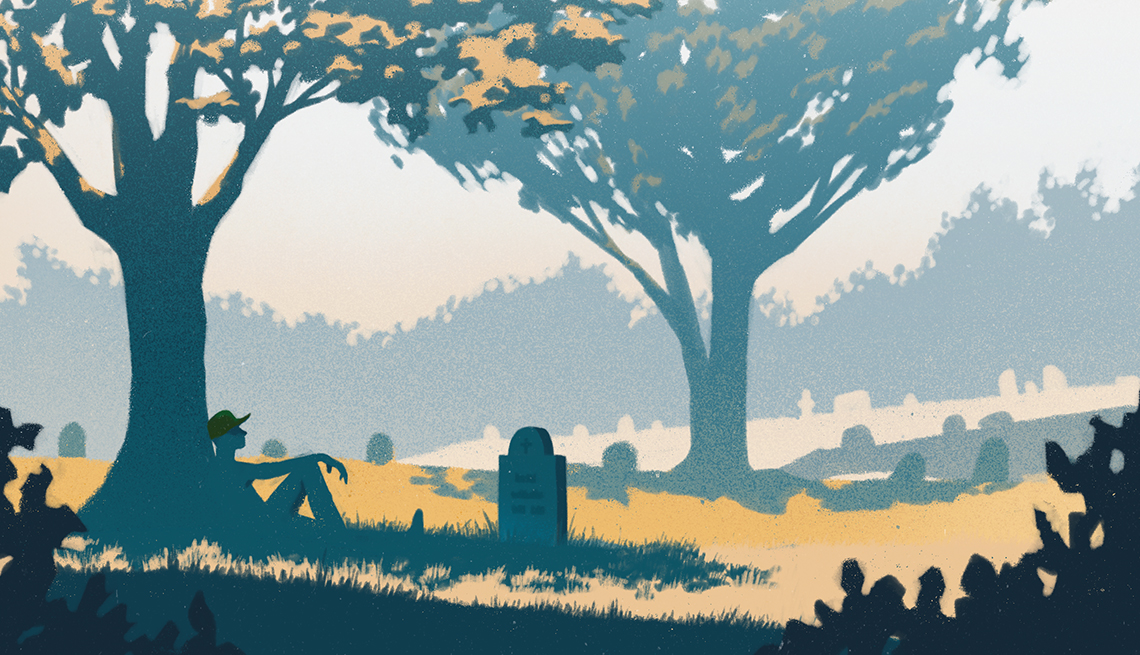
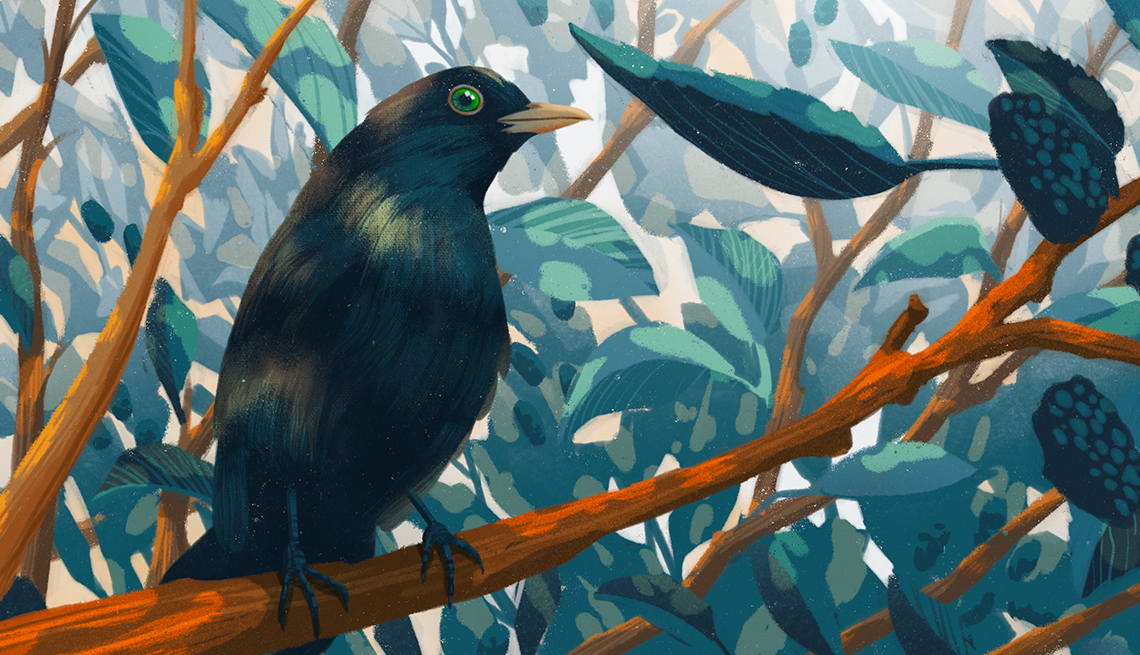
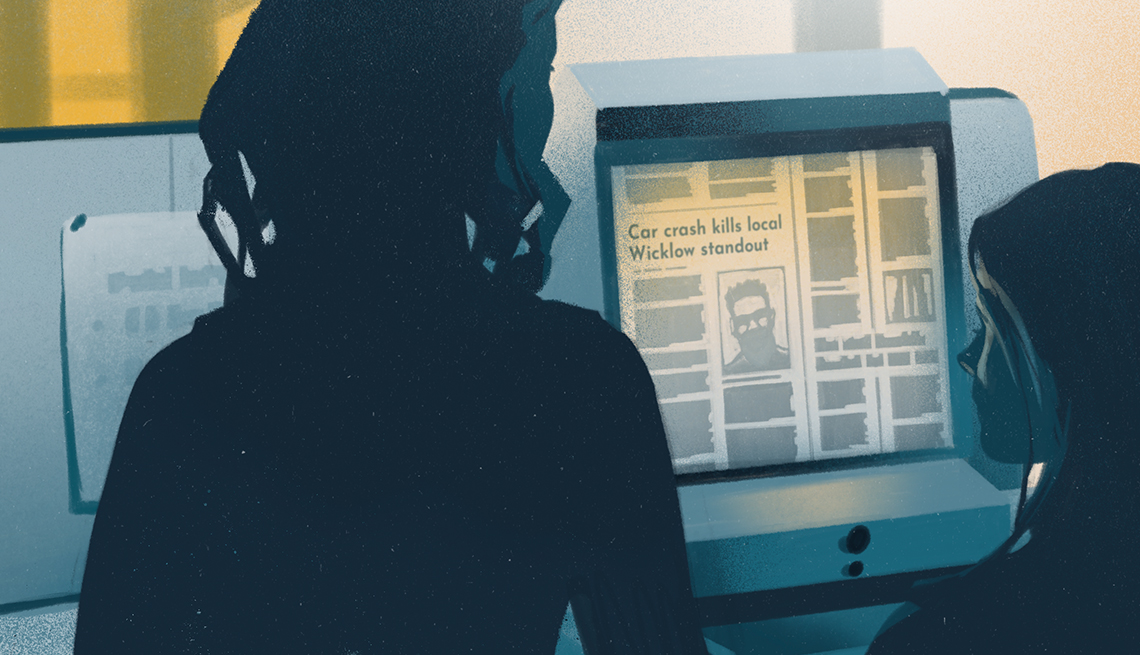
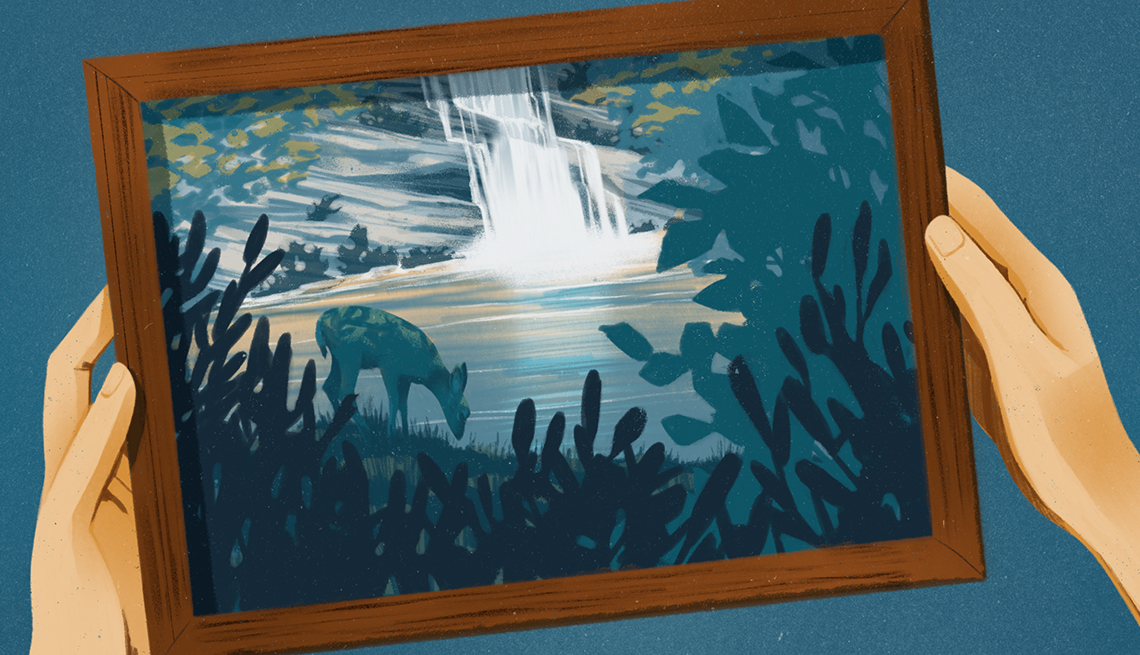
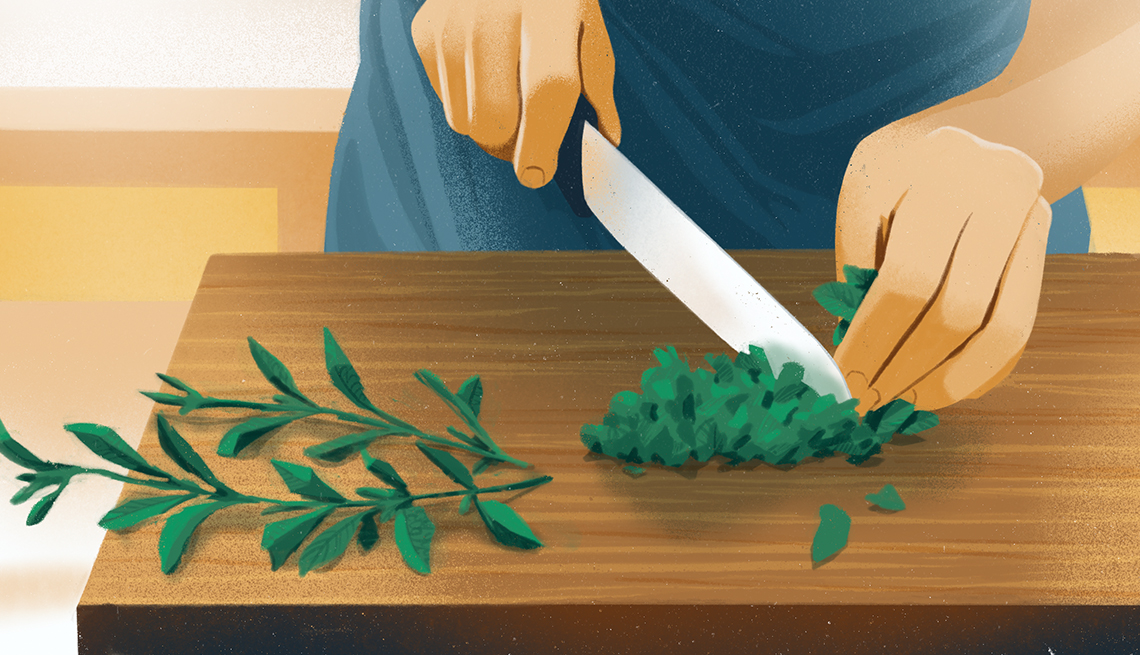
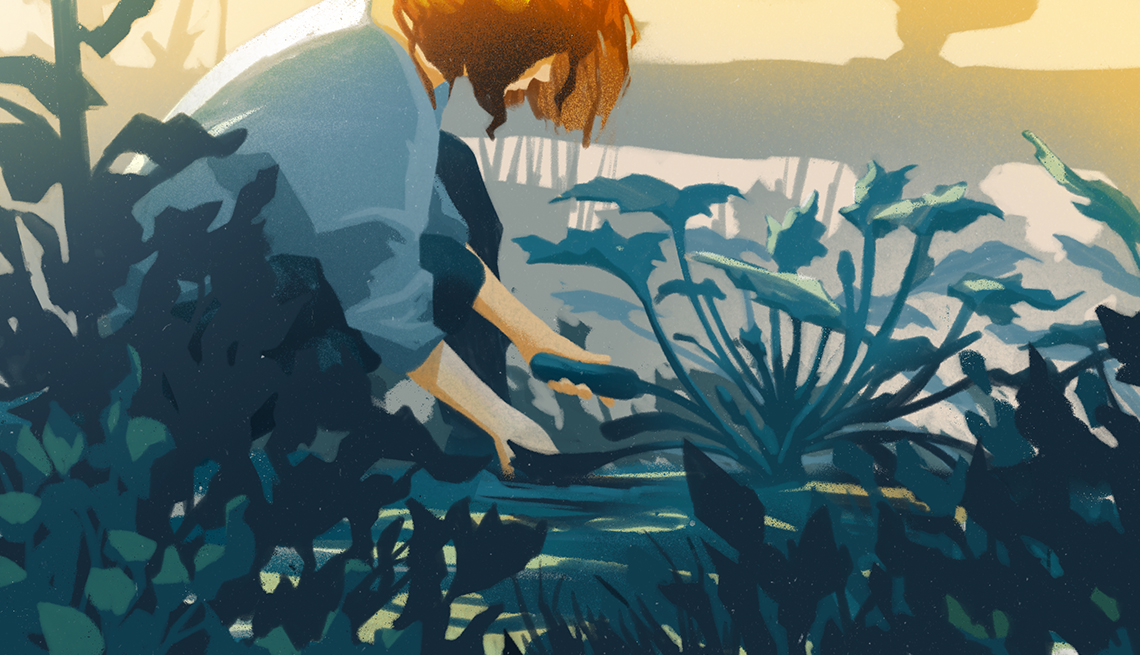
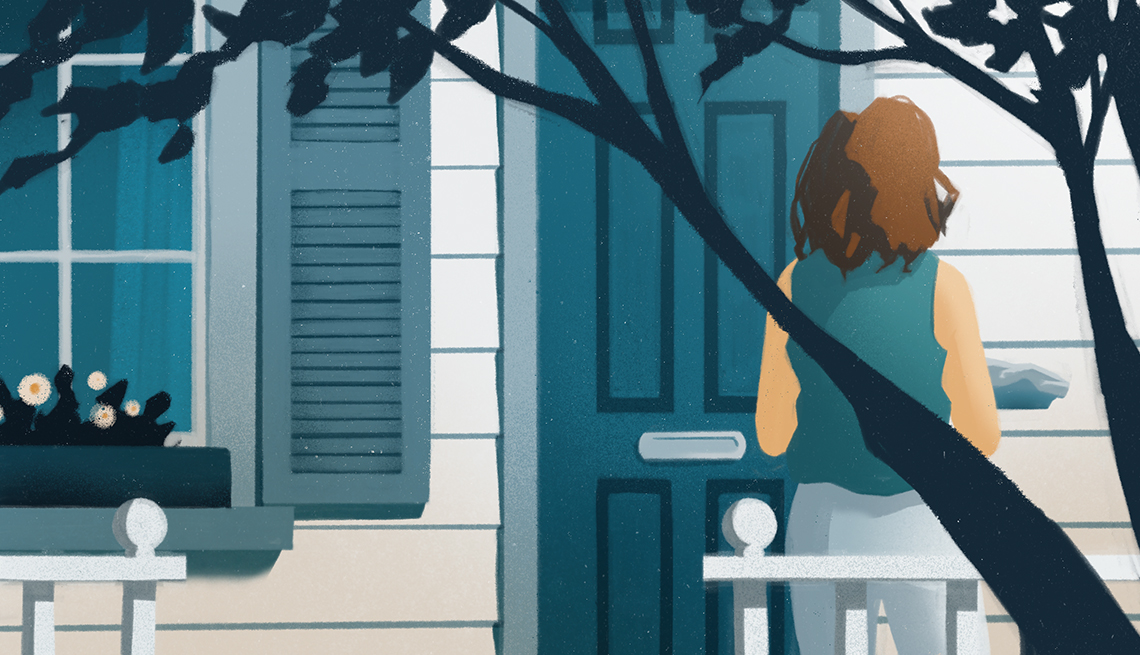
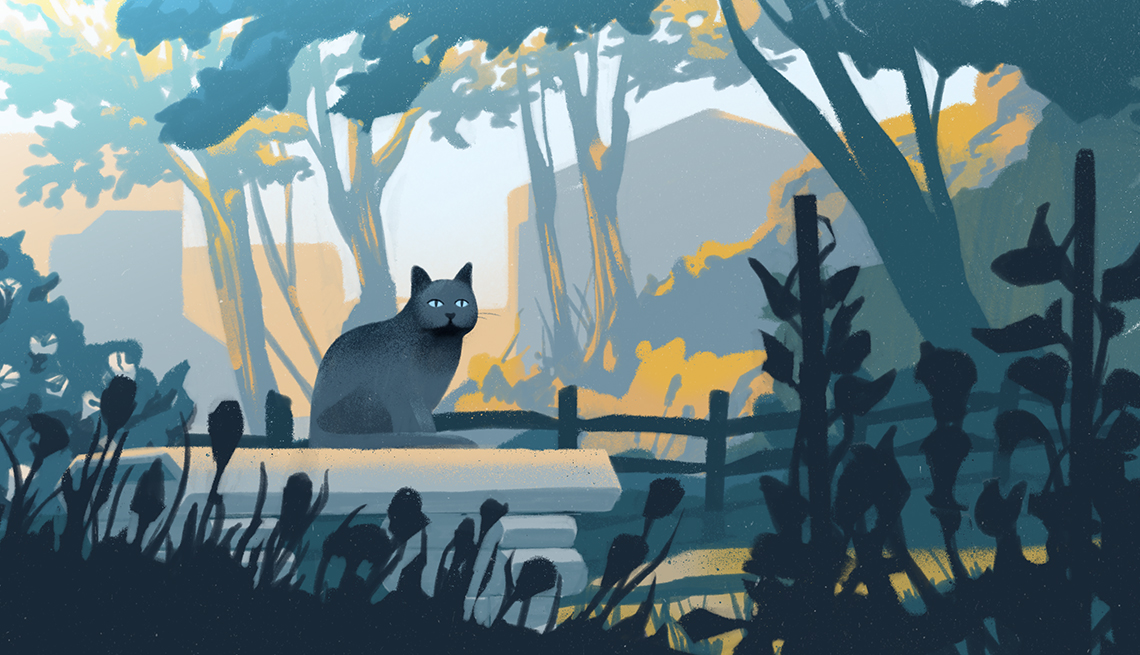
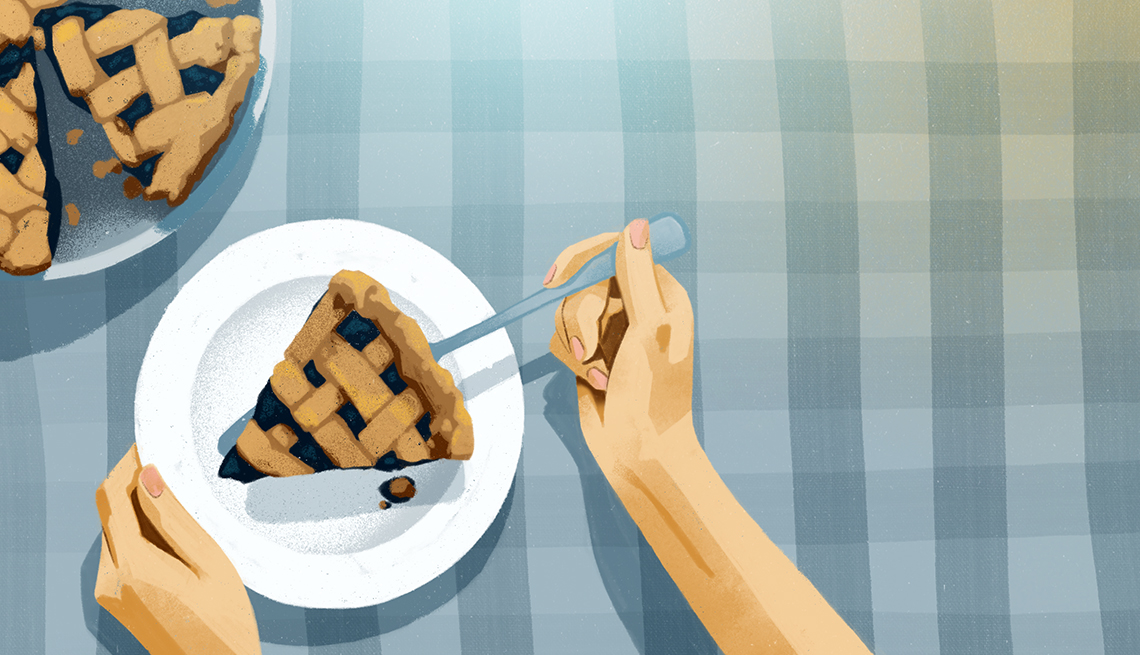

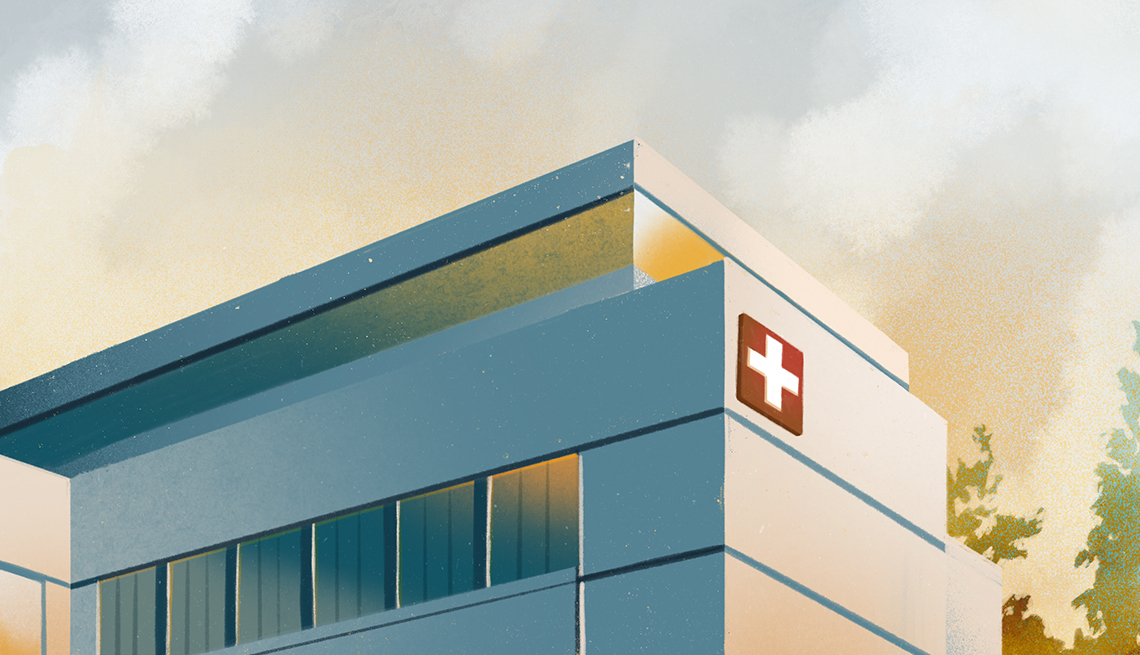
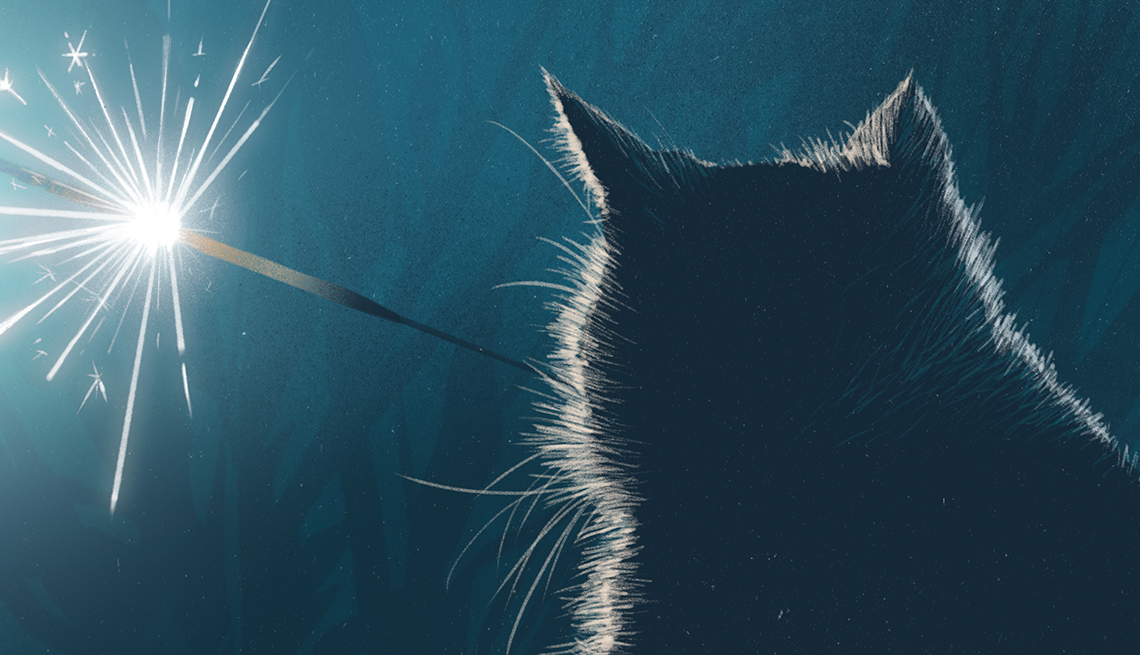
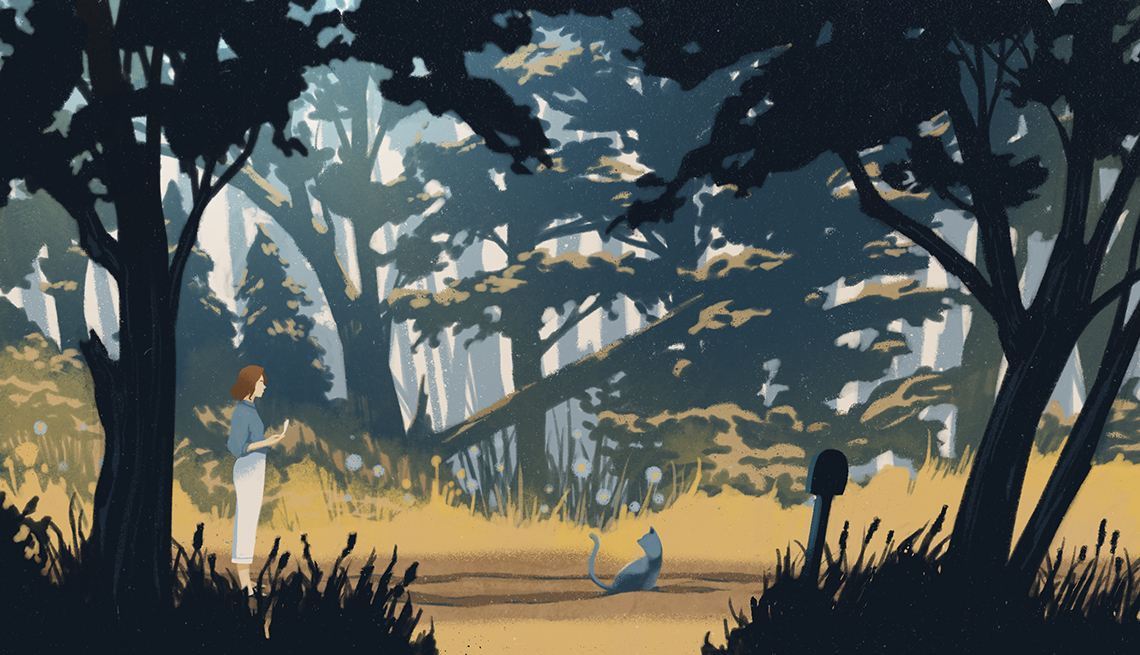
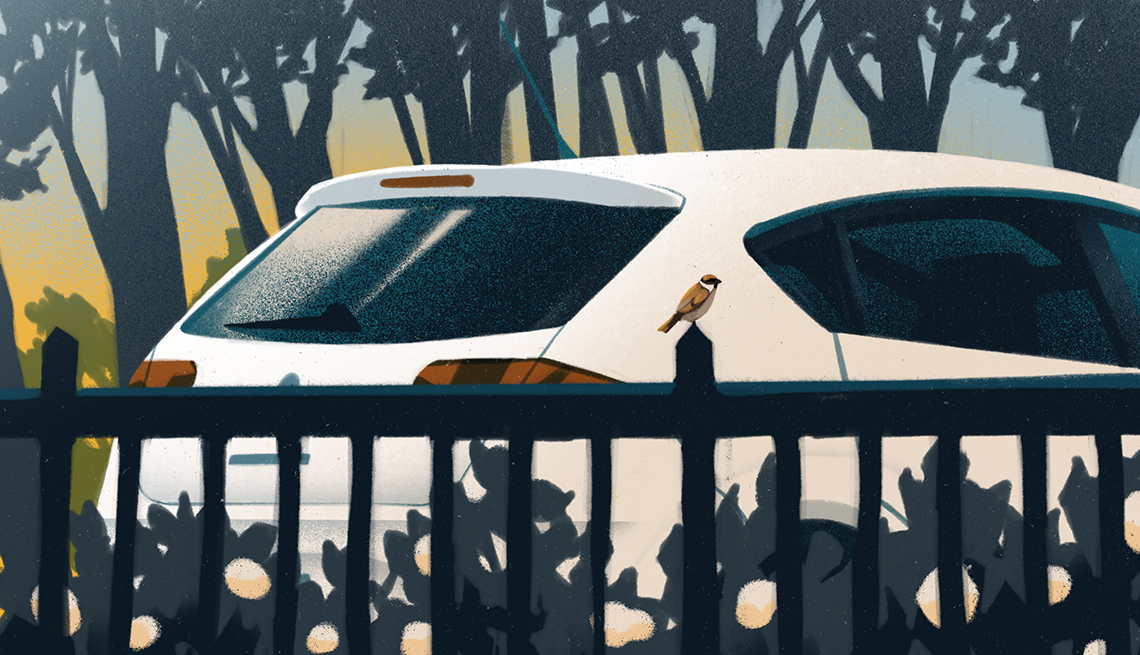







More From AARP
Free Books Online for Your Reading Pleasure
Gripping mysteries and other novels by popular authors available in their entirety for AARP members